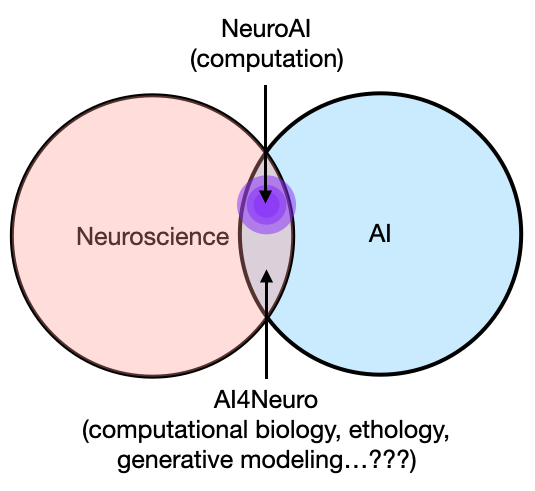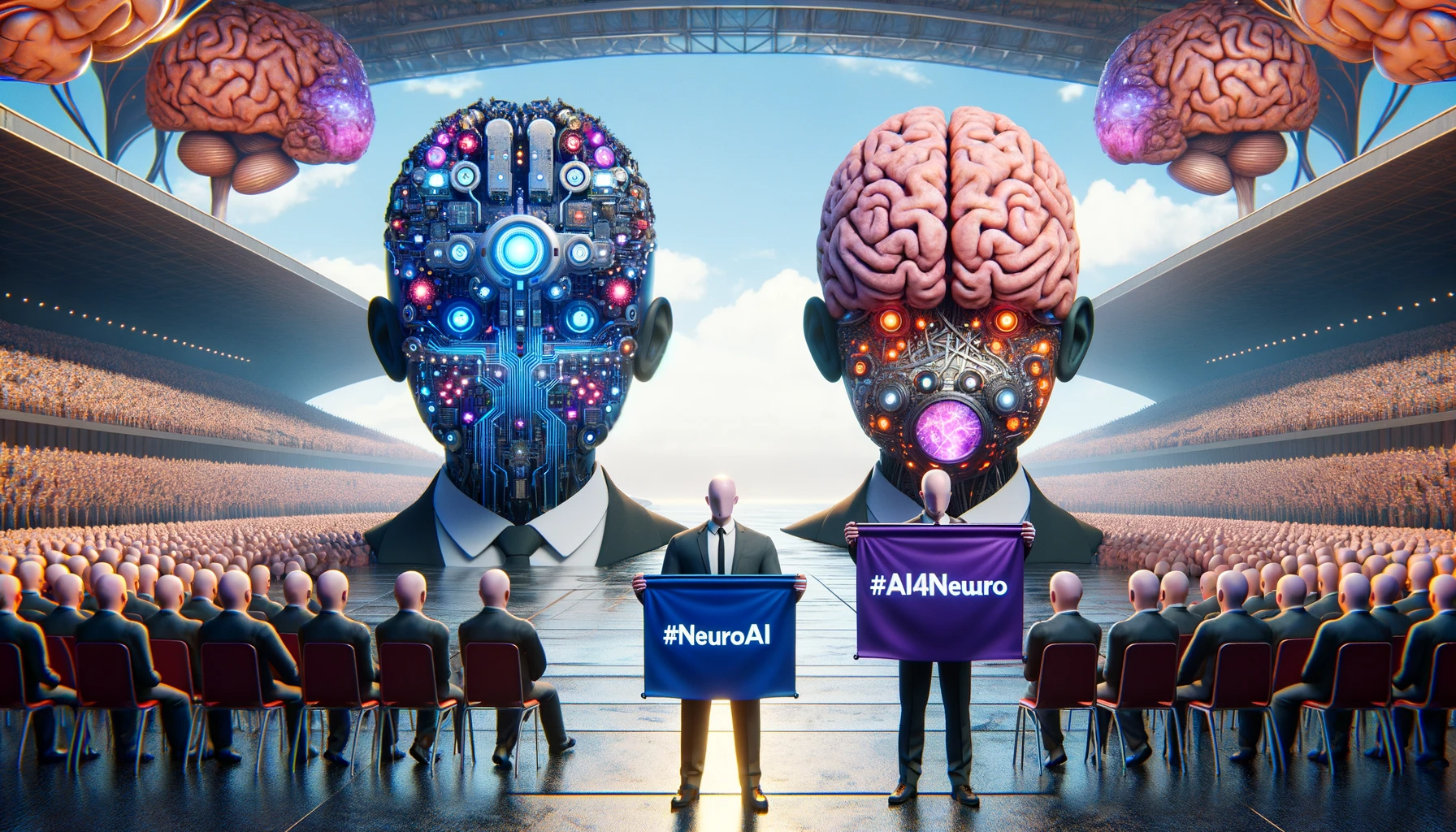Language is often thought of as the pinnacle of human intelligence. It let’s us communicate with each other unreasonably effectively on a day to day basis. Well, more effectively than just pointing and grunting. But recently, I’ve been finding myself becoming more and more unsatisfied with language, in two different ways.
First, it is the ambiguity of language used in cognitive science and neuroscience, especially with terms having to do with mental processes, such as “memory”. I raised this annoyance about cognitive science a few weeks ago, and part of the problem is obviously the immaturity of the field as a whole. In other words, we don’t have good definitions locked down because we haven’t figured out what memory is. But the other problem stems from language itself, I think, or the subjectivity of language. Many expositions and thought experiments have discussed this issue at length, for example, the Wittgenstein’s beetle experiment. In essence, when language is used to discuss something that is purely rooted in the mental realm, i.e., our individual experiences of our own mental processes, we can never be certain that we’re talking about the same thing. In most circumstances, the concept represented by a word in the language is rooted in a physical, existing entity, like an apple. We can have a philosophical discussion about whether apple truly exists, either the physical entity or the concept, but I think it’s not too controversial to say that apple is more of an existing physical entity than a cognitive process like “attention”. So the question here is, because we each experience “attention” differently, just as we experience “red”, can we ever pin down a definition for it? “Redness” is a purely made up concept, but it has enough of a physical representation that we can all point to and just agree on the fact that it is red. “Attention”, however, is something that all of us experience in our daily lives, but cannot ever point to in the external world. We can talk about a specific experience in detail and use that as an example of attention, and we can certainly conduct psychophysics studies that objectively measure a specific aspect of human behavior which we then can agree to call “attention”, but our study of it can never catch up to our ever-evolving experience. A good example of that is “language” itself. What is language? We have formally studied language for quite a long time, but our daily experiences with it have evolved to quite a different thing. Are emojis language? Are they a part of A language, or are they a language of their own? And if (or when) the formal study of language has accepted Emojism as a proper sub-discipline, new ones will have evolved. Hence, does it ever make sense to study something that is inherently ever-changing? Does that mean that cognitive science then, as a whole, is futile? Because the goal is to understand human cognition but you can’t scientifically study something that you can’t define, and you certainly can’t define something if it’s constantly evolving.
My second issue with language is not with language itself, per se, but my own command of it. There is an interview of Bruce Lee talking about how to express oneself honestly through martial arts, that I always come back to, because I think this authenticity is transferable to many other aspect of our lives. Long story short, the difficulty of mastering a skill, whatever it is, lies in aligning your mental and physical self, such that you’re able to express, honestly and accurately, what you’ve envisioned (let’s set aside for now my distaste for a mental representation). In martial arts, it might be the envisioning of a specific sequence of movements. In music, it is the same, but with the outcome of sounds that express the desired emotion. In language, it is a lot more literal - to communicate, through words, one’s true thoughts and feelings. It’s an easy problem at first glance, because words are defined in the dictionary, and we simply have to construct speech with the blueprint of our thoughts the meaning we want to convey. But in practice, it is of course a lot more messy that that, because words don’t mean the same for everyone, and in that sense, using the correct set of words is not the true objective, but rather to convey the experience that we want to convey such that the person listening can understand. The speaker can clearly expect certain baseline commonality in the way the two of them understand words, if they speak the same language. But ultimately, how does the speaker choose to convey meaning if their words are not grounded by the same experiences or mental representations as the listener? Vocabulary is a superficial, but, to a degree, sufficient solution for this problem. Learning new words means you can use more precise language to describe very specific thoughts. I don’t speak German, but that language seems like a pretty good example of this, where you can find really long words that describe very specific things. English, on the other hand, is rather poor in this regard. Still, these words depend on common understanding (or shared context), and using superfluous words might actually hinder understanding.
I came to realize my own poor grasp of language through a simultaneous process of reading and speaking. I recently finished the novel “All the Light We Cannot See”, and it is, in my limited literary experience, a truly wonderful piece of writing. The first half of the story is rather mundane, but the author writes it with such sublime detail that, for the first time, reading for the sake of reading, and not for the plot line, gave me joy. Several passages live vividly in my mind, I will describe just one. Our young protagonist is a blind French girl who lived with her father in Paris at the start of World War 2. She’s just learned Braille a few years ago and is furiously devouring literary classics through her fingertips. On this particular day, however, the German invasion of Paris has begun and her father was summoned to attend to museum business, and she anxiously awaits his return:
“Marie-Laure sits cross-legged on the floor of the key pound and tries to read her novel. Captain Nemo is about to take Professor Aronnax and his companions on an underwater stroll through oyster beds to hunt for pearls, but Aronnax is afraid of the prospect of sharks, and though she longs to know what will happen, the sentences disintegrate across the page. Words devolve into letters, letters into unintelligible bumps. She feels as if big mitts have been drawn over each hand.”
You know that feeling you get when you cannot focus on reading something and you keep going back to the sentence over and over again, each time as if the words disappear into a puff of smoke? I felt like that last passage was the first time I’ve ever been able to truly describe that feeling adequately in words, and it is from a description of a girl who reads with her fingers. And, from that, I felt like I was able to immediately relate to how she felt, even though the way we read cannot be more different. Contrary to what I said above (my first issue), something was able to link these two completely orthogonal and disparate experiences. Of course, I will never know what she was truly feeling, or what the author truly intended to convey, but through this passage, I think I was able to experience for the first time the exquisite power of a literary device. Having experienced how precisely one can describe/invoke an experience with simple, common words, I realized how poorly I take advantage of this in my everyday speech and writing. Part of the problem is that I am really quite literal, so I often feel bound by the “right” definition of words and phrases, to the point that semantic accuracy supersedes imagination, which is unsurprising given my affinity for math and programming. A great example of this is when I struggle to use phrases that I don’t understand the social context for, like “I’m sorry”. To me, “I’m sorry” means I regret and apologize for the mistake or inconvenience that I personally have caused, and only that. But over a very long period of time, I’ve learned that you’re also suppose to say “I’m sorry” to someone when something unfortunate has happened to them, like the death and illness of a friend or family member. This perplexes me to no end, because I didn’t understand how you can be sorry for something that has nothing to do with you. On Merriam-Webster, it actually says it’s an expression of sorrow or regret, so it includes the feeling of sadness I feel when something unfortunate happens to someone I care about. But which is it? Sorrow and regret are completely different things, unless I also misunderstand “regret”. The point is, my new-found awareness of my inadequate command of language feels like if I was trying to practice martial arts underwater - the body does not go where the mind wishes.




